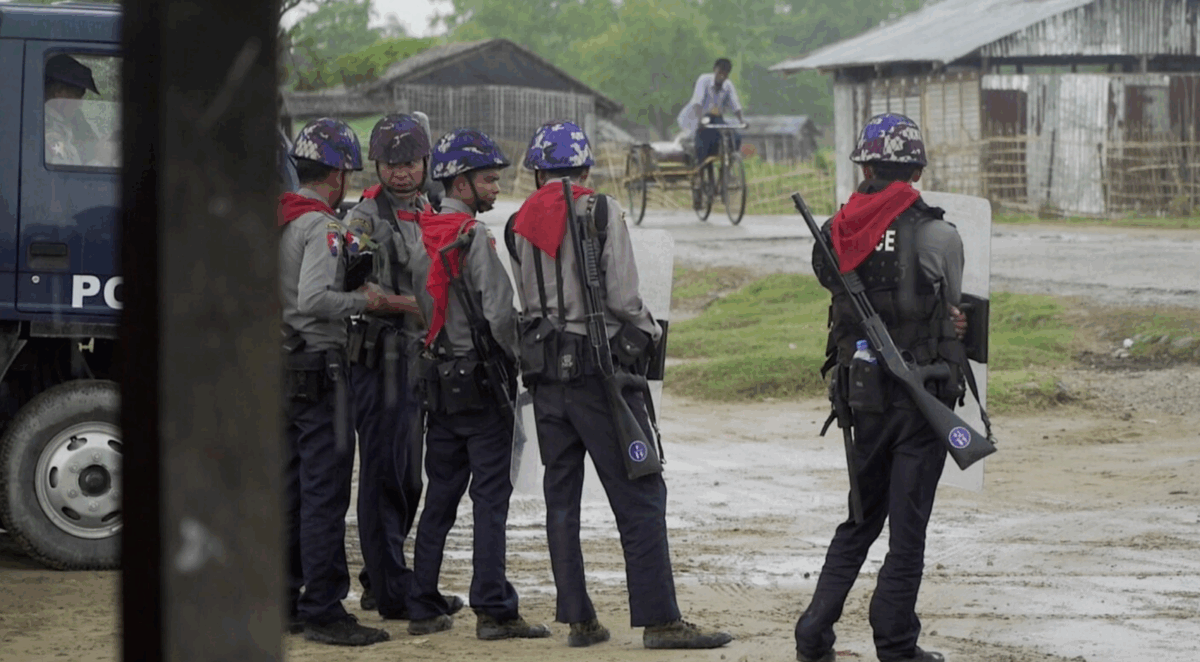China: Rising Travel Restrictions

China’s approach to foreign tourism has grown increasingly selective since the COVID-19 pandemic, with new layers of bureaucracy and security checks added in 2024. The Chinese government has cited national security as its main reason for tightening entry, particularly after several high-profile cyber-espionage cases involving foreign nationals. The South China Morning Post reported in January 2024 that tourist visa applications are down 30% compared to pre-pandemic numbers, a striking decline that underscores the country’s focus on control. Chinese border authorities have been empowered to deny entry to travelers based on country of origin, recent travel history, and even political views. In March 2024, China introduced new biometric screening measures at major airports, further increasing the scrutiny facing incoming tourists. The government has also quietly reduced the number of countries eligible for visa-free travel or visa-on-arrival programs. Many analysts believe these trends are linked to China’s broader efforts to project strength and protect sensitive industries, especially as global tensions remain high.
Russia: Political Tensions and Visa Challenges

Russia’s ongoing conflict with Ukraine and deteriorating relations with the West have made it one of the most difficult destinations for tourists in 2024. New visa rules introduced in February require applicants from the U.S., U.K., and EU to undergo lengthy background checks and provide extensive documentation. According to statistics released by the Russian Ministry of Foreign Affairs, visa applications from Western countries have dropped by 40% this year. This is compounded by the fact that many Western embassies in Russia have reduced staff or closed entirely, making the visa process even more cumbersome. The Russian government has also imposed reciprocal travel bans in response to sanctions, affecting not only diplomatic personnel but also ordinary travelers. International airlines have cut flights to Russia by nearly 50%, limiting access further. For many, the combination of political hostility, bureaucratic hurdles, and limited flight options makes Russia increasingly off-limits.
North Korea: The Ever-Present Barrier

North Korea remains the epitome of a closed country, and its stance toward foreign tourists has only hardened in recent years. In 2024, the government maintained its strict ban on almost all international visitors, citing ongoing health concerns and the need for “vigilant border control.” According to the Korea Tourism Organization, the number of foreign visitors is down more than 90% from pre-pandemic levels, a staggering statistic even for a country known for its isolation. The regime routinely blocks travelers from countries with whom it has diplomatic tensions, and even those from neutral nations face unpredictable delays or outright refusals. The North Korean government announced in April 2024 that it would not consider reopening to tourists until it deemed the “global health situation” satisfactory, with no clear benchmarks provided. Reports indicate that border guards have been instructed to shoot unauthorized entrants, adding a chilling deterrent for would-be visitors. The combination of political secrecy and public health justification keeps North Korea at the top of the list of countries likely to block tourists for the foreseeable future.
Afghanistan: Security Risks and Travel Warnings

Afghanistan’s security situation remains highly volatile, with 2024 seeing no improvement since the Taliban’s takeover in 2021. The U.S. Department of State has maintained its Level 4 “Do Not Travel” advisory, warning that foreign nationals are frequent targets for kidnapping, ransom, and violence. Human Rights Watch reported a rise in human rights abuses throughout 2024, making the environment even more dangerous for outsiders. The United Nations Assistance Mission in Afghanistan (UNAMA) documented over 2,300 civilian casualties in the first half of 2024 alone, a grim testament to the ongoing conflict. The Taliban government has not prioritized tourism, instead focusing on internal security and consolidating power. Entry requirements for foreigners have become nearly impossible to meet, with the need for special permits and constant monitoring by authorities. As the humanitarian crisis deepens, Afghanistan’s borders are likely to remain virtually closed to all tourists.
Venezuela: Economic Collapse and Travel Restrictions

Venezuela’s economic collapse has created a hostile environment for travelers, with basic services and security in short supply. In early 2024, the government introduced new requirements for international visitors, including proof of substantial funds, return tickets, and private health insurance. The World Bank reported that Venezuela’s GDP has shrunk by over 80% since 2014, plunging much of the population into poverty and making life for tourists increasingly precarious. Political instability remains a constant threat, with sporadic protests and violent crackdowns occurring throughout the year. The government has also imposed sudden border closures with neighboring countries, often with little warning, leaving travelers stranded. Several European and North American governments have continued to issue strong warnings against travel to Venezuela, citing risks of robbery, kidnapping, and arbitrary detention. With the situation worsening, Venezuela looks set to maintain or even tighten its restrictions on foreign visitors.
Myanmar: Ongoing Conflict and Travel Bans

Myanmar’s military coup in February 2021 plunged the country into turmoil, and the situation has only become more perilous for tourists in 2024. The International Crisis Group reported in March that clashes between the military and resistance forces have escalated, with entire regions effectively inaccessible. The Myanmar Tourism Board revealed that foreign arrivals have dropped by over 70% since the coup, and the government has suspended most tourist visas indefinitely. The United States, United Kingdom, and European Union have issued blanket travel bans for their citizens, with many airlines ceasing operations to Myanmar’s major airports. Human rights organizations report widespread abuses, including arbitrary arrests and violence against foreigners. The government’s focus on maintaining control has led to checkpoints, curfews, and frequent internet blackouts, making independent travel nearly impossible. With no sign of the conflict easing, Myanmar is likely to remain off-limits to tourists for the foreseeable future.
Iran: Sanctions and Limited Access

Iran’s complicated relationship with the West has led to a sharp decline in tourism, especially after the re-imposition of U.S. sanctions in 2018. The Iranian Ministry of Cultural Heritage, Tourism and Handicrafts reported in January 2024 that foreign tourist arrivals have decreased by 50% over the past six years. Concerns over arbitrary detention of dual nationals and those accused of espionage have been widely reported, discouraging many from visiting. The Iranian government has introduced new visa restrictions for travelers from North America and parts of Europe, requiring security interviews and sometimes denying entry without explanation. International airlines have reduced flights to Iran throughout 2024, limiting access further. The government has also increased monitoring of tour groups and independent travelers, citing national security. With tensions between Iran and Western countries still high, tourism is likely to remain tightly controlled and selectively blocked.
Syria: A War-Torn Destination

Syria’s devastating civil war has dragged on for more than a decade, with no end in sight as of 2024. The U.S. Department of State continues to issue a Level 4 “Do Not Travel” advisory, and the United Nations estimates that over 13 million Syrians remain in need of humanitarian aid. The Syrian government has implemented strict entry requirements, such as demanding proof of a return ticket, sufficient funds, and detailed itineraries. Sporadic fighting and bombings, particularly in the north and along border regions, make travel extremely hazardous. The number of foreign tourists is negligible, with the few who attempt entry often facing suspicion and intense scrutiny. Humanitarian organizations have documented cases of foreigners being detained or denied access based on their nationality. As the conflict persists and the humanitarian crisis deepens, Syria is expected to continue severely restricting, if not outright blocking, tourist arrivals.
Libya: Instability and Security Concerns

Libya’s ongoing instability since the fall of its long-time ruler Muammar Gaddafi in 2011 has kept tourism at a standstill. The Libyan Ministry of Interior reported in March 2024 that foreign arrivals are at their lowest levels in decades, with most embassies warning against all travel. The U.S. and several European countries maintain strict travel bans, citing the high risk of armed conflict, kidnapping, and terrorism. Sporadic fighting between rival militias continues to disrupt basic services, including transportation and communication networks. Libya’s government has responded by tightening visa requirements and restricting movement for foreigners within the country. The threat of kidnapping for ransom, especially in rural and oil-producing areas, remains high and has discouraged even the most adventurous travelers. As the security situation shows no signs of improvement, Libya is likely to keep its doors closed to most tourists.
Belarus: Authoritarian Regime and Travel Restrictions

Belarus has become increasingly authoritarian since the disputed 2020 elections, leading to a sharp drop in foreign tourism. The Belarusian National Statistical Committee recorded a 60% decrease in international arrivals since the onset of mass protests and subsequent government crackdowns. In response to sanctions from the United States and European Union, Belarus has imposed tough new visa rules and increased monitoring of foreign visitors. The government has targeted certain nationalities, particularly those from countries perceived as hostile, with additional entry hurdles. There have been multiple reports in 2024 of foreigners detained or deported for participating in or reporting on political events. Major airlines have reduced or suspended flights to Minsk, further limiting access. As tensions persist and the government seeks to maintain strict control, Belarus is likely to remain a difficult, if not impossible, destination for most tourists.





